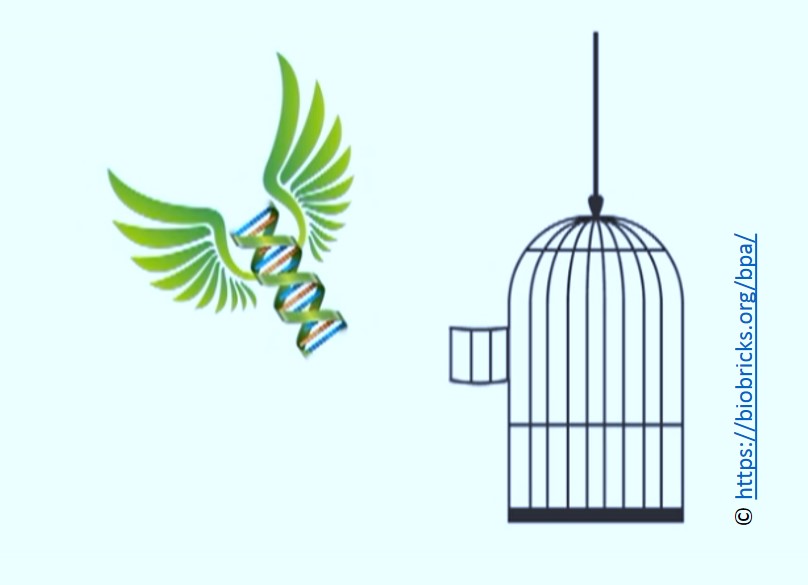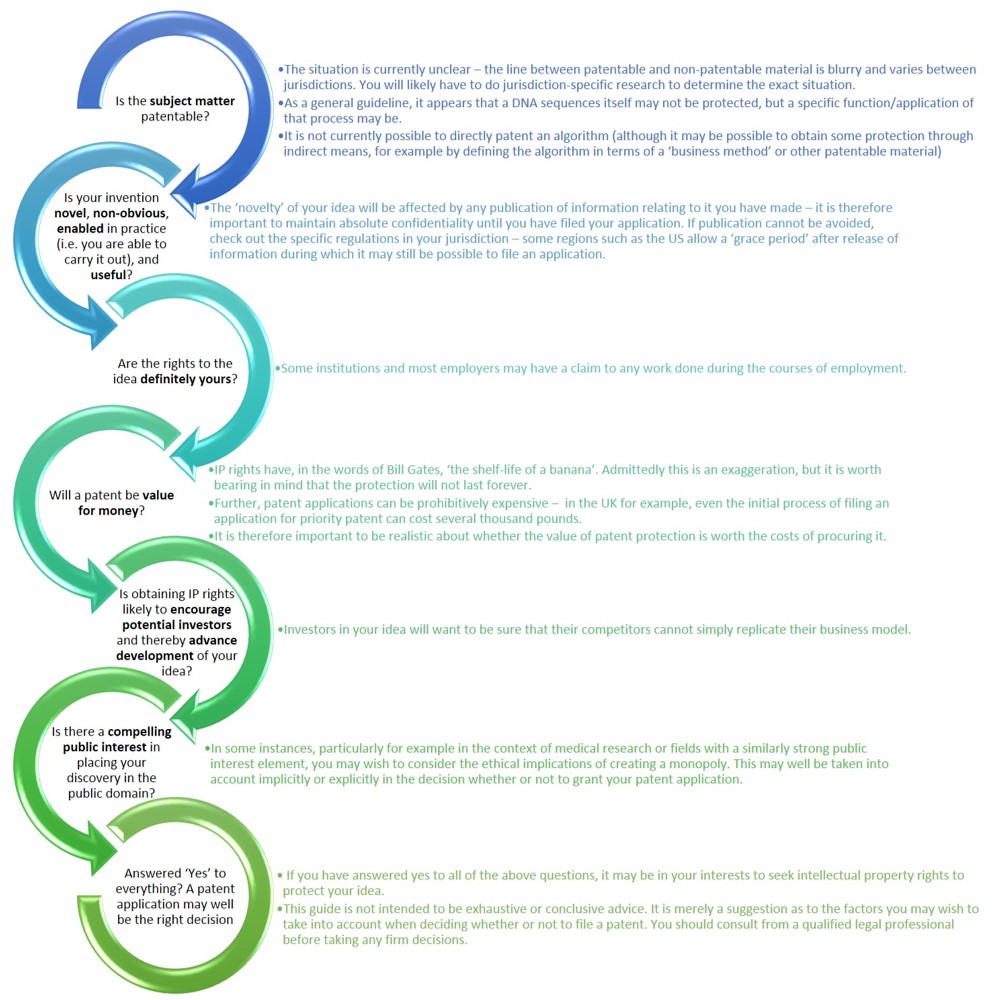Team:Oxford/topsecretIPpage
From 2014.igem.org
(Created page with "__NOTOC__ {{:Team:Oxford/templates/header}} <div class="abcdefg"> <div class="container cf row"> <h1>Intellectual Property</h1> <div class="news_block"> [[File:OxiGEM IP.jpg|40...") |
|||
| Line 12: | Line 12: | ||
nationally as well as globally – will influence the form such a bioeconomy takes, where it will flourish and | nationally as well as globally – will influence the form such a bioeconomy takes, where it will flourish and | ||
flounder, and to whom the principal benefits will flow..."<font style="vertical-align: super; font-size: 70%;">1</font></p> | flounder, and to whom the principal benefits will flow..."<font style="vertical-align: super; font-size: 70%;">1</font></p> | ||
| - | <p>Intellectual Property is an increasingly important and controversial aspect of scientific advance, and synthetic biology is perhaps the paradigmatic area demonstrating the effects of this growing legal influence.< | + | <p>Intellectual Property is an increasingly important and controversial aspect of scientific advance, and synthetic biology is perhaps the paradigmatic area demonstrating the effects of this growing legal influence. Intellectual property will be a crucial area for any team hoping to turn their idea from iGEM project to viable real-world solution to address. Our team has produced a report exploring how teams can approach this task and how iGEM intellectual property policy can make the transition easier. <br> |
| - | + | We begin with a brief overview of current intellectual property law (specifically relevant to the UK) before progressing to look at the challenges this poses for the iGEM competition. A number of different approaches which iGEM might choose to adopt towards intellectual property are discussed and the pros and cons of each are assessed. We then asked a range of interested groups, including iGEM students, professionals, and the public, for their views before arriving concluding with recommendations for addressing intellectual property concerns in iGEM. <br> | |
| + | This page features a few sample items from the report, or flick through the whole document below. </p> | ||
| + | |||
<br> | <br> | ||
</div> | </div> | ||
Revision as of 10:15, 28 August 2014
Intellectual Property
"If a true “modern bioeconomy” is to emerge in the years ahead, intellectual property will no doubt play a critical role. Intellectual property rights – the manner in which they are recognised, traded and managed, nationally as well as globally – will influence the form such a bioeconomy takes, where it will flourish and flounder, and to whom the principal benefits will flow..."1
Intellectual Property is an increasingly important and controversial aspect of scientific advance, and synthetic biology is perhaps the paradigmatic area demonstrating the effects of this growing legal influence. Intellectual property will be a crucial area for any team hoping to turn their idea from iGEM project to viable real-world solution to address. Our team has produced a report exploring how teams can approach this task and how iGEM intellectual property policy can make the transition easier.
We begin with a brief overview of current intellectual property law (specifically relevant to the UK) before progressing to look at the challenges this poses for the iGEM competition. A number of different approaches which iGEM might choose to adopt towards intellectual property are discussed and the pros and cons of each are assessed. We then asked a range of interested groups, including iGEM students, professionals, and the public, for their views before arriving concluding with recommendations for addressing intellectual property concerns in iGEM.
This page features a few sample items from the report, or flick through the whole document below.
What is Intellectual Property?
There are four main types of intellectual property - patent, copyright, know-how, and business secret. <p> The table below compares the benefits and possible drawbacks of each...
Should I file a patent application?
Deciding whether to file a patent application can be a tricky decision - below are just some of the factors you might want to take into consideration...
Conflicting Effects of IP Protection
Incentivising Innovation
Early studies based on data from individual countries found that patents positively influenced innovation by 15-25%. 2
Encouraging Openness
Creation of Monopoly
Other research expresses concern that patents on initial discoveries may delay, hamper, and deter innovations building on this patented work. 3
...But the paper warns against the dangers of continuing to analyse IP issues from within the 'innovation versus access' paradigm/dichotomy.
 "
"

